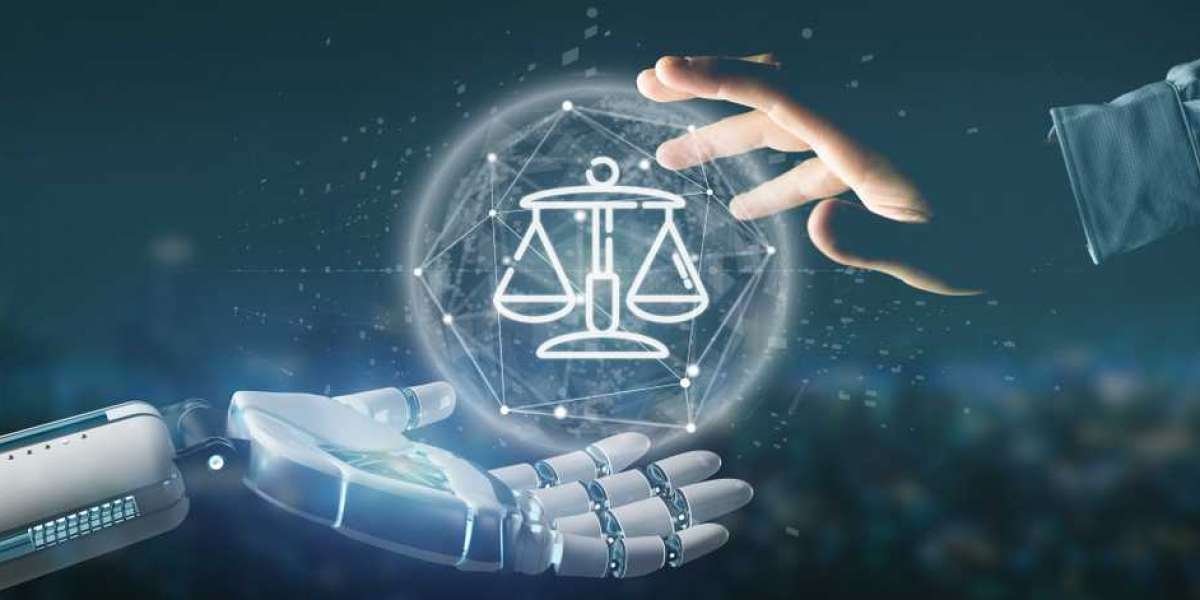Artificial intelligence is rapidly transforming the legal profession, introducing unprecedented efficiencies and capabilities while also raising important ethical and regulatory questions. Legal AI encompasses a range of technologies that automate, augment, and enhance legal work through machine learning, natural language processing, predictive analytics, and other computational methods Legal AI. As law firms, corporate legal departments, courts, and regulatory bodies increasingly adopt these tools, the practice of law is experiencing a fundamental shift that promises both opportunities and challenges.
The Evolution of Legal AI
The journey of AI in law began with basic document management systems but has evolved dramatically. Early legal tech focused primarily on digitizing documents and enabling keyword searches. Today's legal AI systems can analyze thousands of cases in minutes, predict litigation outcomes, draft contracts, conduct due diligence, and even provide preliminary legal advice to clients.
This evolution parallels broader AI advancements but is tailored to legal's unique demands. Legal language is precise, technical, and consequential—mistakes can have serious ramifications. Modern legal AI must navigate complex statutory frameworks, jurisdictional differences, and the nuanced nature of legal reasoning and precedent.
Key Applications of AI in Legal Practice
Legal AI applications span the entire spectrum of legal services. Document review and analysis tools use machine learning to classify, extract, and analyze information from contracts, discovery materials, and other legal documents. These systems can identify relevant clauses, potential risks, and inconsistencies far faster than human reviewers.
Legal research platforms equipped with AI can now analyze vast databases of cases, statutes, and regulations to find relevant precedents and legal arguments. Many can generate research memos that summarize findings and suggest strategic approaches based on historical patterns.
Contract analysis and management systems automate the creation, review, and management of agreements. They can flag problematic clauses, ensure compliance with changing regulations, and even negotiate certain terms based on predefined parameters and risk tolerances.
Predictive analytics tools examine historical case data to forecast litigation outcomes, potential settlement ranges, and judicial tendencies. These insights help attorneys make more informed strategic decisions and provide clients with realistic expectations about their matters.
Client intake and legal chatbots are increasingly handling routine inquiries, conducting preliminary assessments, and gathering necessary information before human intervention. These systems improve accessibility to legal services while freeing attorneys to focus on more complex aspects of representation.
Benefits of Legal AI Implementation
The most immediate benefit of legal AI is efficiency. Tasks that once required days or weeks of attorney time can now be completed in hours or minutes. This translates to cost savings for clients and firms alike, potentially addressing the persistent "access to justice" gap by making legal services more affordable.
Quality and consistency also improve as AI systems apply uniform standards across documents and cases, reducing the risk of human error or oversight. These systems excel at pattern recognition across large datasets, often identifying insights that might elude even experienced practitioners.
Legal AI also enhances decision-making by providing data-driven insights. Rather than relying solely on intuition or limited personal experience, attorneys can now base strategic choices on comprehensive analyses of similar cases and outcomes.
Challenges and Ethical Considerations
Despite its benefits, legal AI raises significant challenges. Accuracy and reliability remain concerns, as even sophisticated AI systems can produce errors or miss nuanced legal distinctions that experienced attorneys would recognize. Questions of liability arise when AI tools make mistakes that affect client outcomes.
Privacy and confidentiality are paramount in legal practice, and AI systems that process sensitive client information must maintain strict data security standards. As these systems typically require large datasets for training, balancing learning needs with confidentiality obligations creates tension.
The "black box" nature of some AI algorithms poses transparency problems in a profession where reasoning and justification are fundamental. When AI makes recommendations or predictions, attorneys may struggle to explain the underlying logic to clients or courts.
Bias and fairness concerns are particularly acute in legal applications. If training data reflects historical biases in legal systems, AI tools may perpetuate or amplify these inequities. Ensuring fair treatment across demographic groups requires ongoing monitoring and mitigation strategies.
Regulatory and Compliance Framework
The regulatory landscape for legal AI remains in flux. Bar associations worldwide are grappling with questions about unauthorized practice of law, attorney supervision requirements, and duty of competence in using new technologies. Some jurisdictions have issued ethical opinions on specific aspects of legal technology, but comprehensive frameworks are still developing.
Data protection regulations like GDPR in Europe and CCPA in California impact how legal AI systems can collect, process, and store information. Compliance with these regulations adds complexity to AI implementation but also establishes important guardrails.
The future of Legal Practice with AI
The attorney's role is evolving rather than disappearing. While AI excels at pattern recognition and routine tasks, human lawyers contribute crucial judgment, creativity, ethics, and emotional intelligence. The most successful legal professionals will be those who effectively collaborate with AI tools—delegating appropriate tasks while focusing their expertise where human insight adds the most value.
Legal education is adapting to prepare new attorneys for this technology-enhanced practice environment. Law schools increasingly incorporate legal tech courses, and continuing education programs help experienced practitioners develop necessary digital literacy.
Access to justice may improve as AI reduces costs and expands service availability. Self-help legal platforms, automated document assembly, and AI advisors make basic legal assistance accessible to those who cannot afford traditional representation.
Conclusion
Legal AI represents both a technological and philosophical shift in how legal services are delivered and consumed. While it promises greater efficiency, consistency, and accessibility, it also challenges fundamental assumptions about legal practice. The coming years will be defined not just by technological advancement but by how the legal profession adapts its ethical frameworks, regulatory approaches, and professional identities to harness AI's benefits while preserving core values of justice, confidentiality, and human judgment. The most successful implementation of legal AI will not simply automate existing processes but reimagine legal service delivery in ways that truly improve outcomes for clients and society. RetryClaude can make mistakes. Please double-check responses.
Search
Popular Posts
-
 Canadian pharmacies not requiring prescription
Canadian pharmacies not requiring prescription
-
 Caramelized Australian Balsamic: Craving Perfection? Aussie Basket Delivers Every Time
Caramelized Australian Balsamic: Craving Perfection? Aussie Basket Delivers Every Time
-
 6G Market Upcoming Opportunities, Trends and Industry Outlook 2025
6G Market Upcoming Opportunities, Trends and Industry Outlook 2025
-
 3D Printing Services in Coimbatore: Choose WOL3D Coimbatore for Superior Quality
3D Printing Services in Coimbatore: Choose WOL3D Coimbatore for Superior Quality
-
 Indulge in Mutual Massage in London for Connection and Complete Relaxation
Indulge in Mutual Massage in London for Connection and Complete Relaxation









